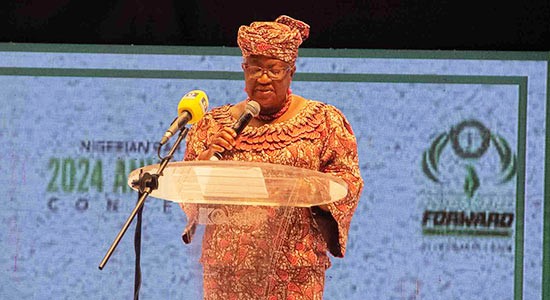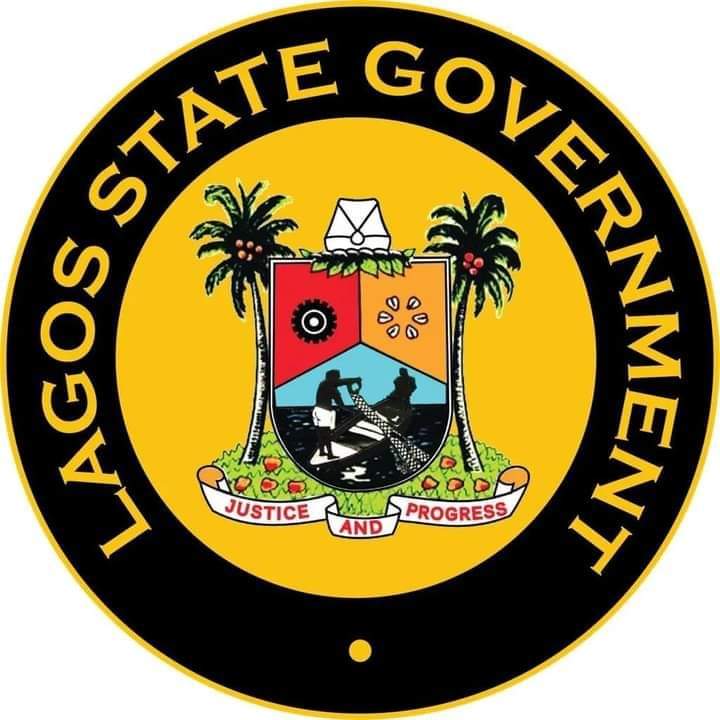*Says policy consistency will lead Nigeria to progress
The Director-General of the World Trade Organisation (WTO), Dr Ngozi Okonjo-Iweala, has tasked political office holders to stop the attitude of looting the nation’s assets.
Dr Okonjo-Iweala, who also held sway as Nigeria’s Finance Minister and Coordinating Minister of the Economy, equally insisted that Nigeria is not where it is to be, adding that the country has not progressed as it should be.
Speaking as the Keynote Speaker at the ongoing 2024 Annual General Conference of the Nigerian Bar Association (NBA), Dr Okonjo-Iweala said, “That is why, more than 60 years after independence, the NBA and all general conferences are still looking at things like rebuilding Nigeria, charting a course for nation building.
“I said it’s not in recrimination or even in futile regret, but rather as part of moving our country and advancing its interests. We are living in very difficult times, locally here in Nigeria, but also globally.
“We have seen protests in this country a few weeks ago, but we have also seen protests elsewhere on this continent and beyond.
“These difficulties should make us think deeply and reflect on what is needed to move this country forward, so we can have the right type of conversation, not about blame games or recrimination, but about what we need to do to tackle present and emerging problems, to assure a bright future for our young people in this country.”
In her speech entitled ‘A Social Contract for Nigeria’s Future’, the WTO boss, while arguing that Nigeria had all it takes to succeed, and yet had fallen behind countries that were on par with it back in the early years of independence, stated that, “I want to remind people that in the first half of the 1960s, our per capita income in 1960 dollars was roughly equal to that of South Korea, in the neighbourhood of $100 to $120 dollars per capita, according to World Bank data.
“But then South Korea’s growth took off, as it went from exporting primary products like tungsten oil and dried seaweed to manufactured goods.
“Back then it was textiles and footwear, compared to today’s integrated circuits, electronics, ships and autos, not to mention services exports, such as gaming, entertainment, etc., where South Korea is also strong.
“Meanwhile, Nigeria’s export basket went in the opposite direction and became less diversified. In the early 1960s, mining exports made up half of our exports, and food and animal or vegetable oils together about a third, with manufacturers accounting for five to seven per cent.
“But since 1974, oil has dominated, often accounting for 97% to 100% of Nigerian exports, with its share rarely dipping below 90%.
“The good news is that our economy itself is quite diversified, and with the capacity to do much more in terms of agricultural exports, critical minerals, services such as entertainment, etc.”
She commended ongoing efforts by the Federal Government (FG) to diversify the exports of our country.
In expressing reservations over the failure of Nigeria to sustain rates of economic growth and development that consistently outpace the growth of the population, the former minister said, “We have had episodes of reform and faster economic growth that were not merely a function of the price of oil, but we were unable to consolidate and build on them.
“A very important part of the explanation for why we’ve not been able to succeed is lack of policy consistency.
“We all understand that where policies are bad and not working, of course politics should intervene.
“But where things are working to the good, we ask, why fix what is not broken?
“To minimise the volatility of economic and social policy and to set our country on a steady growth and development path, rather than an episodic growth path, I have become increasingly convinced that Nigeria needs a social contract.
“All Nigerians must agree that stealing of our national assets of any type is intolerable and must be stopped.”
Ngozi Okonjo-Iweala, also advocated policy consistency in Nigeria regardless of change from one administration to another.
“Maintaining good economic and social policies; maintaining policy consistency and adding more reforms on top of that will lead us along the path of good progress that we all desire,” she told a room filled with lawyers at the Eko Hotel & Suites in Lagos on Sunday.
The globally respected developmental economist known for her African print Ankara wears and peculiar headgear tilted at a convenient angle delivered a keynote address titled, ‘A Social Contract For Nigeria’s Future’ at the opening ceremony of the 2024 Annual General Conference of the Nigerian Bar Association (NBA) on Sunday.
The former Nigerian finance minister decried a phenomenon she labelled as the “not-in-my-administration syndrome” in governance which she said has been responsible for the not-so-good economic performance of Nigeria.
She said Nigeria needs a social contract and that all Nigerians regardless of political or other affiliations should agree on a social contract.
The developmental economist said certain sacrosanct policies should not be changed whenever Nigeria witnesses administration changes.
She said some of these policies should be made into law after being scrutinised by the public.
Okonjo-Iweala said maintaining policy consistency and adding more reforms on top of that will along the path of good governance that we all desire.
According to her, the security of lives and national assets should be prioritised in the social contract, adding that basic organs of the economy should be left to work independently.
“No one should tamper with the Central Bank asking for the manipulation of interest rates or exchange rates. Do not use the Central Bank as a fiscal agent asking for the printing of naira beyond agreed Ways and Means limits as this can fuel inflation,” she added.
The former World Bank top executive said the provision of basic infrastructure should form the third element of the social contract. She said the crafting of social safety nets for the most vulnerable of society should be included in the social contract.
True independence of the judiciary should form the fourth element of the social contract, she said, while charging the NBA to hold the government accountable on all grounds.
She said a social contract will enable a strong and stable foundation for Nigeria upon which citizens and residents can thrive.
Declaring the conference open, President Bola Ahmed Tinubu said the collapse of the multiple exchange rate regime, which provided an opaqueness and room for corruption, was one of the monumental decisions of the Tinubu-led administration.
Represented by Vice-President Kashim Shettima, the President expressed happiness that the NBA has a stunning history, notable for championing the ideals of democracy and promotion of the rule of law.
President Tinubu said, “Indeed, it is quite remarkable that NBA leadership has sought to integrate, interrogate, and chart a developmental path for the country by addressing for the second year in a row the fundamental needs and tasks of building and rebuilding our dear nation.
Earlier in his remarks, the NBA President, Yakubu Mikyau (SAN) advised lawyers across the country to have a change of attitude to governance and eschew corruption
In this article:

